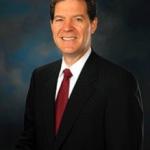Throughout the 2016 Republican nominating contest and general election campaign, a vocal subset of conservative white evangelicals has, for the first time since at least 1980, refused to support a Republican presidential candidate.
Elsewhere over the past few months, I have explained why this could be politically consequential. But in general, I find that the people who are excited by this development tend to overstate its impact.
- Even if some conservative evangelicals balk at Trump, they are still white conservatives. The GOP is more their party than the Democrats have been or will be for decades.
- They are still going to support House and Senate Republicans, almost all of whom endorse Trump and will lead Trump’s majority coalition in Congress (if he is elected). Is a vote for a Republican candidate for Congress a vote for or against Trump’s agenda? To my knowledge, #NeverTrump evangelicals have not thought seriously about this question.
- Conservative evangelicals have been told for 35 years that voting Republican is practically a Christian duty. Even if they are inclined to listen to #NeverTrump elites (which is debatable), they may not be able to push an emergency shut-off valve on millions of voters’ lifetimes of GOP loyalty.
- Hillary Clinton is going to win the 2016 election regardless of what #NeverTrump evangelicals do. Her election does not depend on a million or so evangelicals staying home. She has not reached out to conservative evangelicals at all (though I wish she would). Politicians can basically ignore them, and they will continue voting Republican in sizeable numbers.
- When this election is all over, erstwhile #NeverTrump evangelicals will swiftly and faithfully return to the GOP fold. It’s entirely plausible that after a couple years of Hillary Clinton’s legislative accomplishments, executive actions, and judicial appointments, white evangelicals will be fighting to elect Republicans in 2018 and 2020 as though Donald Trump never happened.
I do not want to pour cold water on conservative evangelicals. It may be true that their political influence is inversely proportional to their 2016 Trump vote. But I do want to caution excited #NeverTrump-ers: There are built-in realities embedded our political system that a fraction of the electorate in one cycle cannot change.
Sure, a subset of conservative evangelicals will withhold their votes from Trump this year. But most of them will still advocate for the election of Trump-supporting Republicans in the House and Senate. And by withholding their votes from Hillary Clinton, their Trump opposition is a half measure: It will not result in the kind of margins needed to claim that they handed the White House to Mrs. Clinton — or denied it to Donald Trump.













